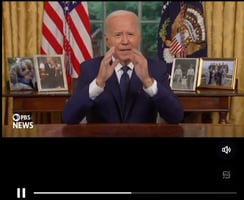As deepfake technology advances, political figures—like celebrities—are becoming increasingly...
California's AI Law: Censorship or Protection for Democracy?
The debate surrounding California’s new law aimed at regulating AI-generated election content raises an important question: Is this censorship, or is it a necessary step to protect democracy?
On one hand, the law seeks to address the growing threat posed by deepfakes and misleading AI-generated media, which can have a serious impact on political discourse. Misinformation has never been more pervasive, as deepfakes can easily be used to deceive voters, manipulate opinions, and disrupt democratic processes. By requiring social media platforms to block and label such content, the law aims to safeguard election integrity and prevent the spread of false information.
However, on the other hand, there is a compelling argument that this measure could infringe on free speech. The lawsuit filed by X (formerly Twitter) argues that the law’s broad language could lead to excessive censorship, particularly of content that is not overtly harmful or false but is critical, exaggerated, or satirical. This could unintentionally suppress legitimate political speech, including parody or critiques of government officials and candidates.
Balancing the fight against misinformation with the preservation of free speech is a tricky tightrope walk. At Chess, we believe attribution is the key to discerning whether content is legitimate political speech or hostile foreign nation-state influence. The Authentica platform conducts forensic analysis of media to provide data points that support attribution. Join government officials worldwide who vet media with Authentica here!
What are your thoughts? Join the conversation and leave a comment below!




Join the Conversation!